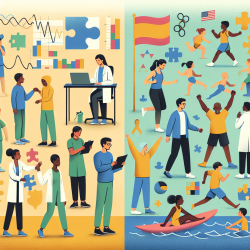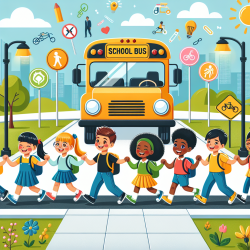The COVID-19 pandemic brought unprecedented challenges to our social fabric, impacting how we interact and support one another. Amidst these challenges, prosocial behavior emerged as a beacon of hope, fostering well-being and resilience. A recent study titled "To Help or Not to Help? Prosocial Behavior, Its Association With Well-Being, and Predictors of Prosocial Behavior During the Coronavirus Disease Pandemic" sheds light on the significance of prosocial actions during this global crisis.
The Power of Prosocial Behavior
Prosocial behavior encompasses actions aimed at benefiting others, such as helping, sharing, and comforting. The study found that such behaviors were prevalent during the pandemic's first lockdowns and were consistently associated with enhanced well-being across various regions. This finding aligns with existing research suggesting that helping others can lead to emotional rewards and improved mental health.
Key Predictors of Prosocial Behavior
- Perceived Social Support: The availability of supportive relationships was the strongest predictor of prosocial behavior. A robust social network provides a context for displaying prosocial actions and fosters emotional competencies.
- Psychological Flexibility: This trait enables individuals to adapt their behaviors according to situational demands, promoting prosocial choices even in challenging times.
- Perceived Stress: Interestingly, higher levels of perceived stress were linked to increased prosocial behavior, suggesting that affiliative actions may serve as a coping mechanism during stressful periods.
- Positive Affect: A positive mood was also found to enhance prosocial tendencies, reinforcing the idea that feeling good encourages helping behaviors.
Implications for Practitioners
Practitioners in educational settings can leverage these insights to foster a culture of prosocial behavior among students and staff. Here are some strategies to consider:
- Create Supportive Environments: Cultivate a sense of community within schools by encouraging peer support groups and mentorship programs. This can enhance perceived social support and promote prosocial actions.
- Enhance Psychological Flexibility: Incorporate activities that encourage adaptability and openness to new experiences. Mindfulness practices and values-based interventions can strengthen psychological flexibility among students and staff.
- Address Stress Positively: Recognize stress as a potential catalyst for positive change. Provide resources for stress management while highlighting opportunities for students to engage in helping behaviors as a form of stress relief.
- Nurture Positive Emotions: Foster an environment where positive emotions are celebrated. Activities that boost mood—such as gratitude exercises or acts of kindness—can encourage prosocial behavior.
The Role of Further Research
The findings from this study underscore the importance of understanding the nuances of prosocial behavior in different cultural contexts. Practitioners are encouraged to delve deeper into this area through further research or by participating in professional development opportunities focused on positive psychology and social-emotional learning.
To read the original research paper, please follow this link: To Help or Not to Help? Prosocial Behavior, Its Association With Well-Being, and Predictors of Prosocial Behavior During the Coronavirus Disease Pandemic.
Conclusion
The COVID-19 pandemic has highlighted the critical role of prosocial behavior in enhancing individual well-being and societal resilience. By implementing strategies that promote supportive environments, psychological flexibility, stress management, and positive emotions, practitioners can empower their communities to thrive even in adversity. As we continue navigating the complexities of post-pandemic life, let us harness the power of prosocial behavior to build a more compassionate world.










